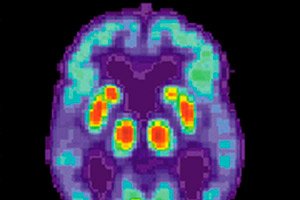
All iLive content is medically reviewed or fact checked to ensure as much factual accuracy as possible.
We have strict sourcing guidelines and only link to reputable media sites, academic research institutions and, whenever possible, medically peer reviewed studies. Note that the numbers in parentheses ([1], [2], etc.) are clickable links to these studies.
If you feel that any of our content is inaccurate, out-of-date, or otherwise questionable, please select it and press Ctrl + Enter.
Nasal spray shows promise in treating Alzheimer's disease
Last reviewed: 02.07.2025
 ">
">A future treatment for Alzheimer's disease may involve a nasal spray. Researchers from the University of Cattolica and the Fondazione Policlinico Universitario A. Gemelli IRCCS have found that blocking the brain enzyme S-acyltransferase (zDHHC) with a drug in the form of a nasal spray can counteract the cognitive decline and brain damage characteristic of the disease.
Key findings of the study
The study, led by Professors Claudio Grassi and Salvatore Fusco in collaboration with the University of Catania, was published in the journal Proceedings of the National Academy of Sciences.
- In Alzheimer's patients, an excess of the zDHHC enzyme is found in post-mortem brain samples, making it a promising target for new drugs.
- Higher levels of this enzyme are associated with worse cognitive performance.
Mechanism of action
Alzheimer's disease is characterized by the accumulation of abnormal proteins such as beta-amyloid and tau in the brain. Their functions are regulated by a variety of signals and modifications, including S-palmitoylation, a process in which a fatty acid is attached to proteins. This process is carried out by enzymes called S-acyltransferases (zDHHC).
- "In previous studies, we have shown that impaired S-palmitoylation of synaptic proteins plays a key role in cognitive decline caused by metabolic diseases such as type 2 diabetes," explains Professor Fusco.
- Alzheimer's is often referred to as "type 3 diabetes" because of the established links between insulin resistance and neurodegenerative diseases.
In early stages of Alzheimer's disease, elevated levels of the enzyme zDHHC7 lead to altered S-palmitoylation of key proteins, which contributes to beta-amyloid accumulation and cognitive impairment.
New perspectives of treatment
The researchers tested pharmacological and genetic inhibition of S-palmitoylation in animal models of Alzheimer's disease. This resulted in:
- reducing the accumulation of pathological proteins in neurons;
- slowing the onset and progression of cognitive impairment.
In experiments on genetically modified mice, scientists used an experimental nasal spray called 2-bromopalmitate, which successfully:
- stopped neurodegeneration,
- reduced symptoms,
- increased life expectancy.
Next steps
Despite these advances, there are currently no drugs that can selectively block zDHHC7, and 2-bromopalmitate lacks precision.
Professor Grassi explains:
"We are planning to develop new approaches that can be translated into clinical settings. These include 'genetic patches' (small oligonucleotides that bind to the RNA of the zDHHC7 enzyme and prevent it from maturing) or engineered proteins that can interfere with the activity of zDHHC enzymes."
Conclusion
These findings raise the prospect of new treatments for Alzheimer's disease that aim to reverse neurodegeneration and maintain cognitive function. Although current approaches require further development, the use of a nasal spray as a drug delivery vehicle already shows significant potential for future therapy.
